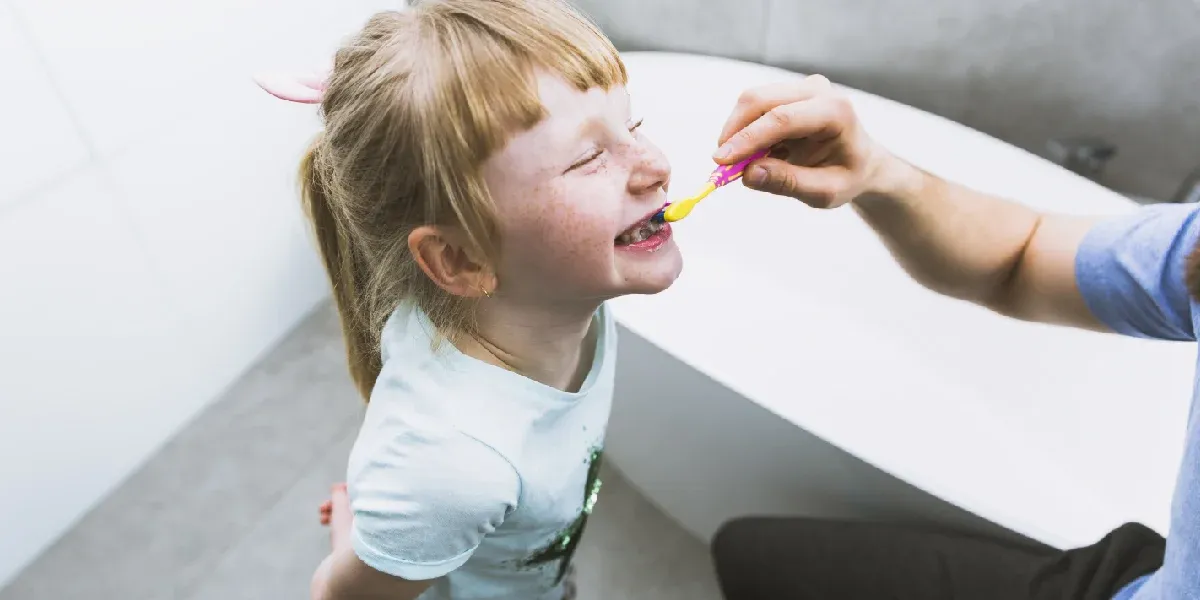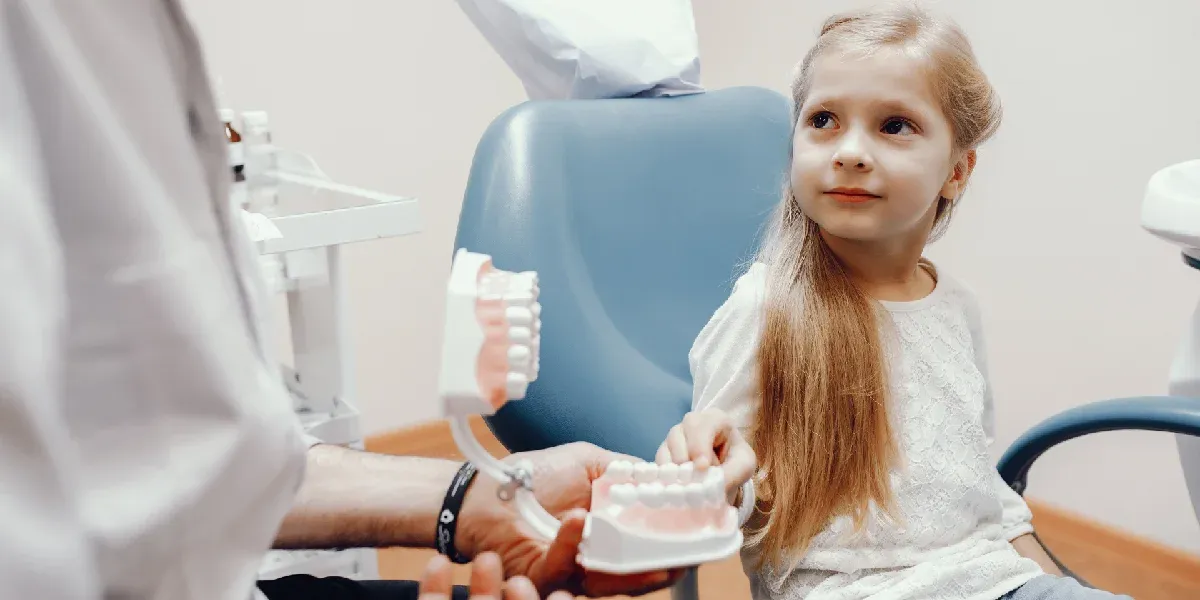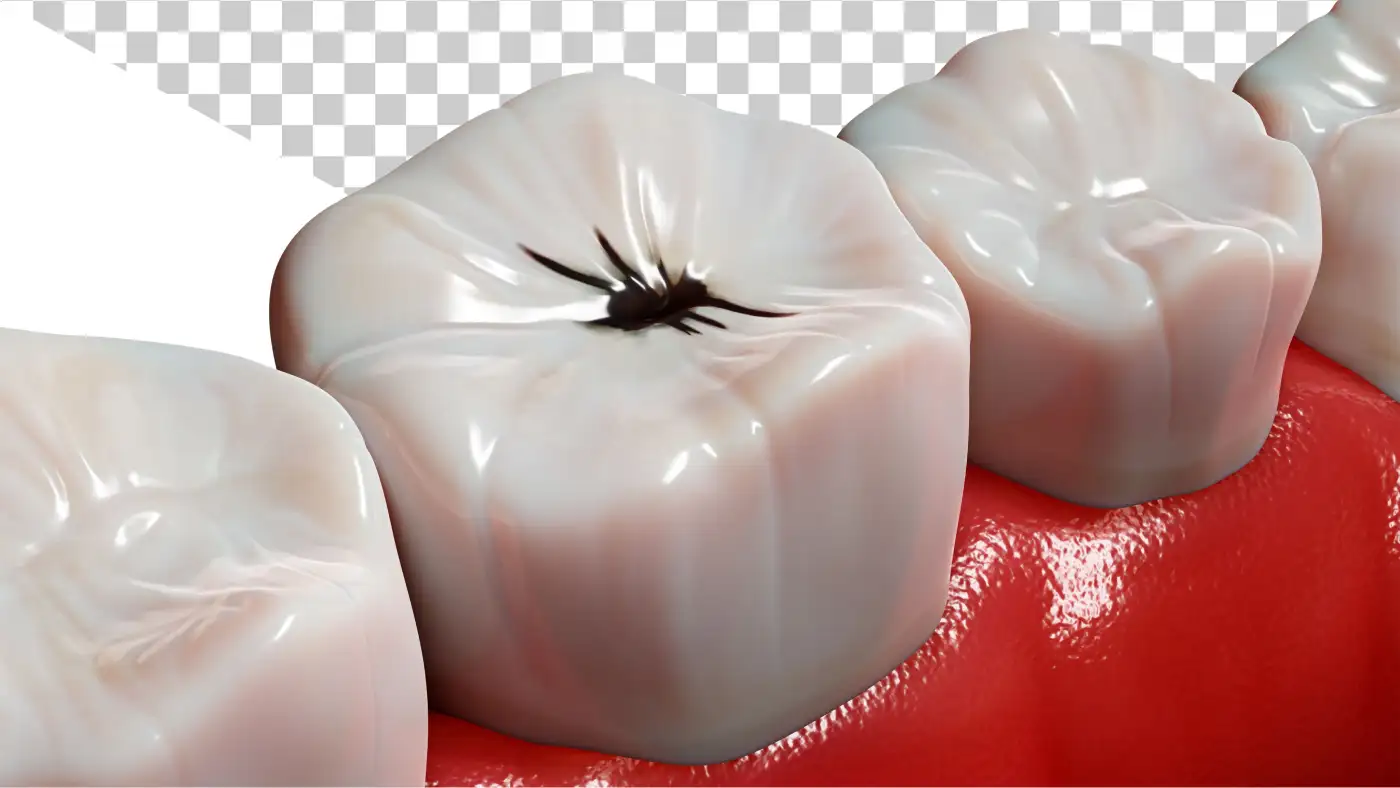
Most Common Causes of Tooth Decay in Children
Tooth decay is a preventable yet widespread problem that affects children of all ages, races, and socioeconomic backgrounds. A complex interplay of factors plays a role in causing tooth decay, including diet, oral hygiene, genetics, and environmental factors. This article will discuss the common causes of tooth decay in children and provide practical tips to prevent it.
The chief cause of tooth decay is poor oral hygiene. When children fail to brush and floss their teeth regularly, food particles and bacteria accumulate in their mouths, forming a sticky film called plaque. This plaque produces acids that attack the tooth enamel, causing it to erode over time. Afterward, tooth decay can progress if not treated well on time.
Finally, it leads to cavity formation, toothaches, and tooth loss. Therefore, parents must teach their children good oral hygiene habits from a young age and supervise their brushing and flossing routines. Frequent dental check-ups and cleanings can also help detect and treat tooth decay early on, preventing further damage to the teeth.
"Tooth decay commonly prevails among children, with more than one in four children aged 2-5 years and half of the children aged 6-11 years affected by tooth decay in their primary teeth".
Symptoms of Tooth Decay in Children
- Tooth sensitivity: Tooth decay can cause sensitivity to hot or cold food and drinks or when biting down on something hard.
- Toothache: A toothache is a common symptom of tooth decay. The pain can be constant or intermittent, depending upon severity.
- Visible cavities: As tooth decay progresses, cavities may become visible on the tooth's surface. They may appear as dark spots or holes in the tooth.
- Bad breath: Bacteria that cause tooth decay can also cause bad breath.
- Discoloration of teeth: Tooth decay can cause discoloration of the affected teeth, which may appear brown or black.
Causes of Tooth Decay in Children
The World Health Organization (WHO) reports that 60-90% of school-aged children have tooth decay, one of the top ten most prevalent diseases worldwide. Tooth decay is increasing among young children in the United States, with an estimated 16.2 million children under 18 affected by untreated tooth decay. Here, we will discuss the most common causes of tooth decay in children for your enlightenment.
Poor Oral Hygiene: The most common cause of tooth decay in children is poor oral hygiene. Failure to maintain optimal oral hygiene can accumulate bacteria and food particles in the mouth, which can cause plaque formation. Plaque produces acids that attack the tooth enamel and lead to tooth decay.
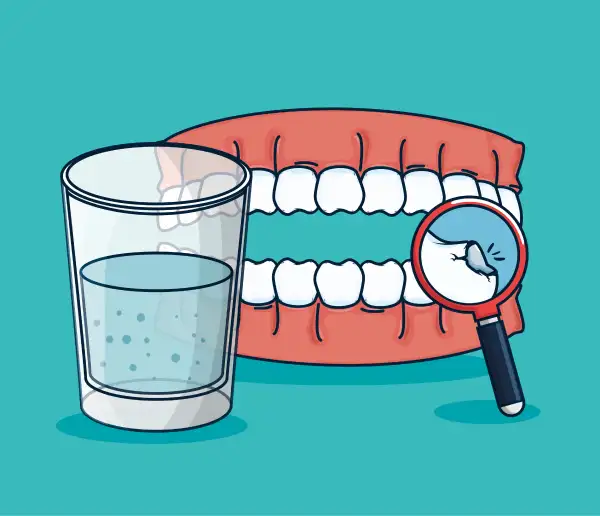
Sugary, Acidic Foods, and Drinks: Sugary and acidic foods and drinks can erode the tooth enamel and cause tooth decay. These include candy, soda, fruit juices, sports drinks, and other sugary snacks. When children consume these foods and beverages, the sugar and acid mix with the bacteria in the mouth to form plaque.
Poor Nutrition: A diet lacking essential nutrients like calcium, phosphorus, and vitamin D can weaken the tooth enamel and increase the chances of tooth decay. Encouraging children to eat a balanced diet of fruits, vegetables, whole grains, and dairy products is essential to maintain healthy teeth.
Genetics: Genetics plays a role in tooth decay. Children may inherit weak tooth enamel or have a predisposition to developing cavities. Therefore, knowing the family's dental history and taking appropriate preventive measures to avoid tooth decay is crucial.
Inadequate Fluoride: Ineffective fluoride in the water supply or toothpaste can increase the risk of tooth decay. Therefore, it is essential to use fluoride toothpaste and drink fluoridated water to maintain healthy teeth.
Dry Mouth: Sometimes, the child's mouth remains dry because of insufficient saliva, which can lead to tooth decay. Therefore, it is essential to encourage children to stay hydrated and avoid medications that can cause dry mouth. Saliva helps neutralize the acid in the mouth and wash away food particles and bacteria.
Improper Use of Pacifiers and Bottles: If children misuse them, they can be a source of tooth decay. Prolonged use of pacifiers and bottles can cause the teeth to shift and lead to malocclusion, a condition where the teeth do not align correctly. Therefore, it is crucial to wean children off pacifiers and bottles at an appropriate age and discourages thumb-sucking.
Which children are at the most risk of developing tooth decay?
Some children are more susceptible to tooth decay than others. Here are some factors that reflect why such children have more chances of developing tooth decay:
- Poor oral hygiene: Children who do not brush their teeth regularly or adequately are more likely to develop tooth decay.
- High-sugar diet: Consuming a diet high in sugary and starchy foods and drinks can increase the risk of tooth decay.
- Infants put to bed with a bottle: Prolonged exposure to sugary drinks or milk can cause tooth decay in infants who fall asleep with a bottle in their mouth.
- Lack of fluoride: Fluoride helps protect teeth from decay. Children who do not receive enough fluoride through water or dental products may be at a higher risk of developing tooth decay.
- Dry mouth: Children who have a decreased saliva flow or dry mouth due to medication or a medical condition are at a higher risk of developing tooth decay.
- Family history: Children with a family history of tooth decay or other dental problems are more likely to develop tooth decay themselves.
- Low socioeconomic status: Children from low-income families may have limited access to dental care and may be at a higher risk of developing tooth decay.
- Special healthcare needs: Special children may have difficulty maintaining good oral hygiene, making them more susceptible to tooth decay.
It is essential to identify children at a higher risk of developing tooth decay and take steps to prevent tooth decay. It may include regular dental check-ups, fluoride treatments, counseling on healthy eating habits, and proper oral hygiene.
Diagnosis and Treatment of Tooth Decay
Tooth decay is diagnosed with the help of the following techniques and tools:
- Dental exam: A dentist can diagnose tooth decay by examining the teeth and looking for signs of cavities or other abnormalities.
- X-rays: X-rays can detect cavities that are not visible to the naked eye, especially in between teeth.
- Laser fluorescence: This is a newer diagnostic tool that uses a laser to detect early signs of tooth decay.
- DIAGNOdent: This device uses laser fluorescence to detect tooth decay before it becomes visible to the naked eye.
- Transillumination: This is a diagnostic technique where a bright light is shone through the tooth to detect any cavities or abnormalities.
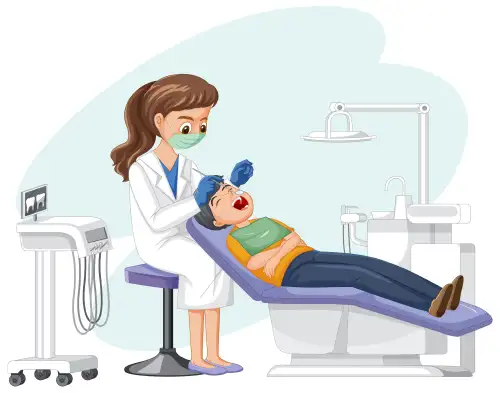
The Treatment of tooth decay in children will depend on the extent of the cavity, the child's age, and overall health. In general, treatment options for tooth decay in children include:
- Fillings: If the decay has only affected the outer layer of the tooth (enamel), a filling helps restore the tooth.
- Crowns: If the decay has reached the tooth's inner layer (dentin), a dental crown may be necessary to restore the tooth.
- Root canal: When the decay reaches the tooth's innermost layer (pulp), a root canal procedure becomes vital to remove the infected pulp and save the tooth.
- Extraction: Extraction may be necessary if the decay is too extensive.
Addressing tooth decay in children as soon as possible is essential to prevent further damage and potential complications. In addition to treating the decayed tooth, the child's dentist may recommend fluoride treatments, dental sealants, or other preventive measures to protect the child's remaining teeth from further decay.
Early diagnosis and Treatment of tooth decay in children are crucial to prevent the decay from progressing and causing more significant problems, such as infections or tooth loss. Therefore, it is essential to schedule regular dental check-ups for children and to seek dental care promptly if any symptoms of tooth decay are present.
Ways to Prevent Tooth Decay in Children
- Start good oral hygiene habits early: Habits formed early in life help prevail throughout life. Try to begin brushing your child's teeth when the first tooth appears. Use a soft-bristled toothbrush and a pea-sized amount of fluoride toothpaste. Encourage your child to brush for two minutes twice a day.
- Encourage a healthy diet: A diet high in fruits, vegetables, and whole grains and low in sugary and starchy foods and drinks can help prevent tooth decay. Offer water or milk instead of sugary drinks.
- Use fluoride: Fluoride helps strengthen tooth enamel and prevent tooth decay. Ensure your child gets enough fluoride through toothpaste, drinking water, and fluoride treatments at the dentist.
- Limit snacking: Frequent snacking can increase the risk of tooth decay. Encourage your child to eat a balanced meal and limit snacking between meals.
- Discourage sugary drinks: Sugary drinks like soda, sports drinks, and juice can majorly contribute to tooth decay. Encourage your child to drink water instead.
- Protect teeth during sports: If your child plays sports, wear a mouthguard to protect them from injury.
- Schedule regular dental check-ups: Regular dental check-ups can help identify and prevent tooth decay. It is best to visit your dentist after every six months.
- Fluoride varnish: A fluoride varnish is a protective coating applied to children's teeth to help prevent tooth decay. Meet with your child's dentist to know how often your child needs a varnish.
These practical tips can help prevent tooth decay in your child and promote good oral health. Remember, good oral hygiene habits and a healthy diet can go a long way in preventing tooth decay.
Wrap Up
Tooth decay affects many children worldwide and is a common health concern. There are various causes of tooth decay, including a diet high in sugary and starchy foods and drinks, prolonged exposure to sugary drinks or milk, lack of fluoride, dry mouth, family history, low socioeconomic status, and special healthcare needs.
Preventing tooth decay in children requires a multifaceted approach, including good oral hygiene habits, a healthy diet, regular dental check-ups, and appropriate use of fluoride. It is essential to identify children at a higher risk of developing tooth decay and take steps to prevent tooth decay.
Parents, caregivers, and healthcare providers all play a critical role in promoting good oral health and preventing tooth decay in children. By following the practical tips outlined above, parents and caregivers can help protect their children's teeth and promote healthy habits that will benefit their oral health for years.
Contact your dentist in Stockton, Sajjad Rizvi, DDS at Happy Kids Dental, to know more about Common Causes of Tooth Decay in Children.
Resource:
How to Prevent Tooth Decay in Kids
*This media/content or any other on this website does not prescribe, recommend, or prevent any treatment or procedure. Therefore, we highly recommend that you get the advice of a qualified dentist or other medical practitioners regarding your specific dental condition*
Subscribe To Our Newsletter
Get Updates And Learn From The Best

